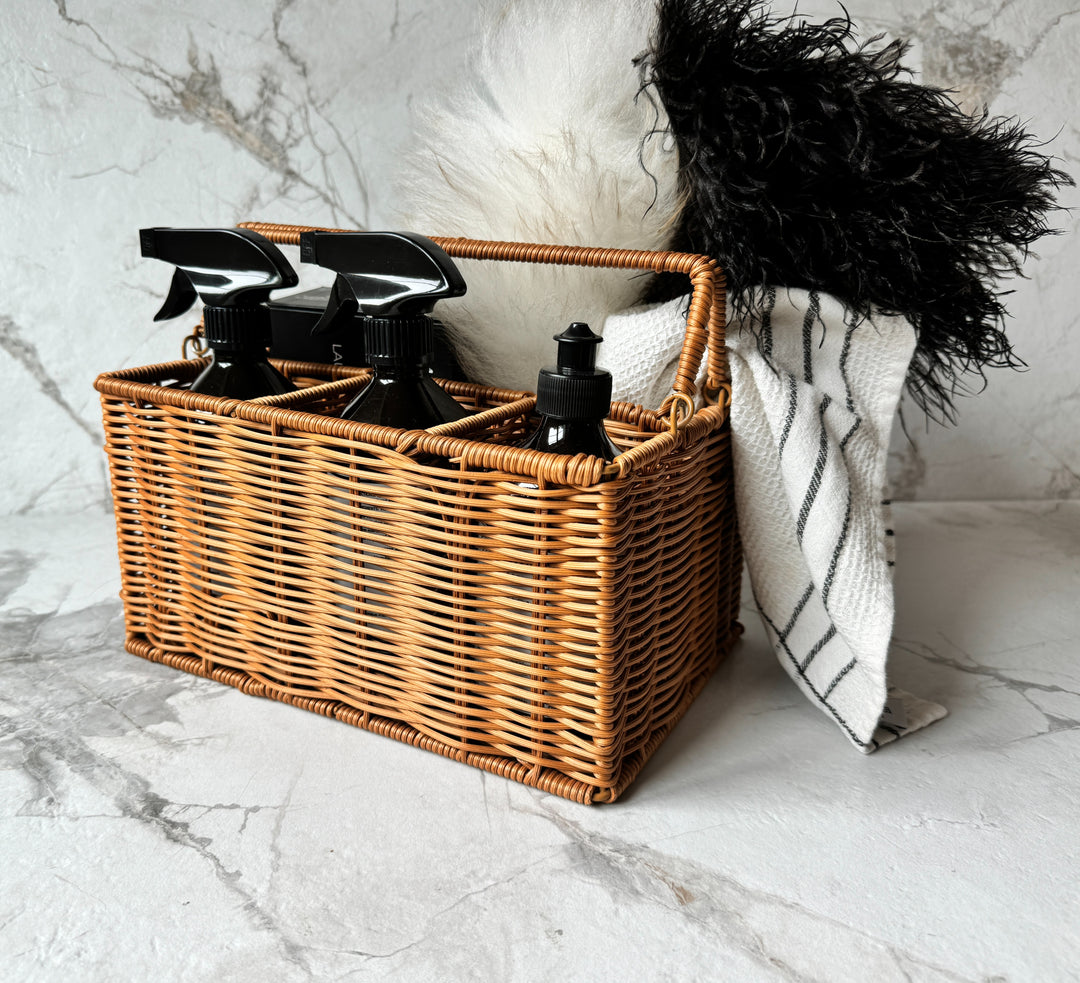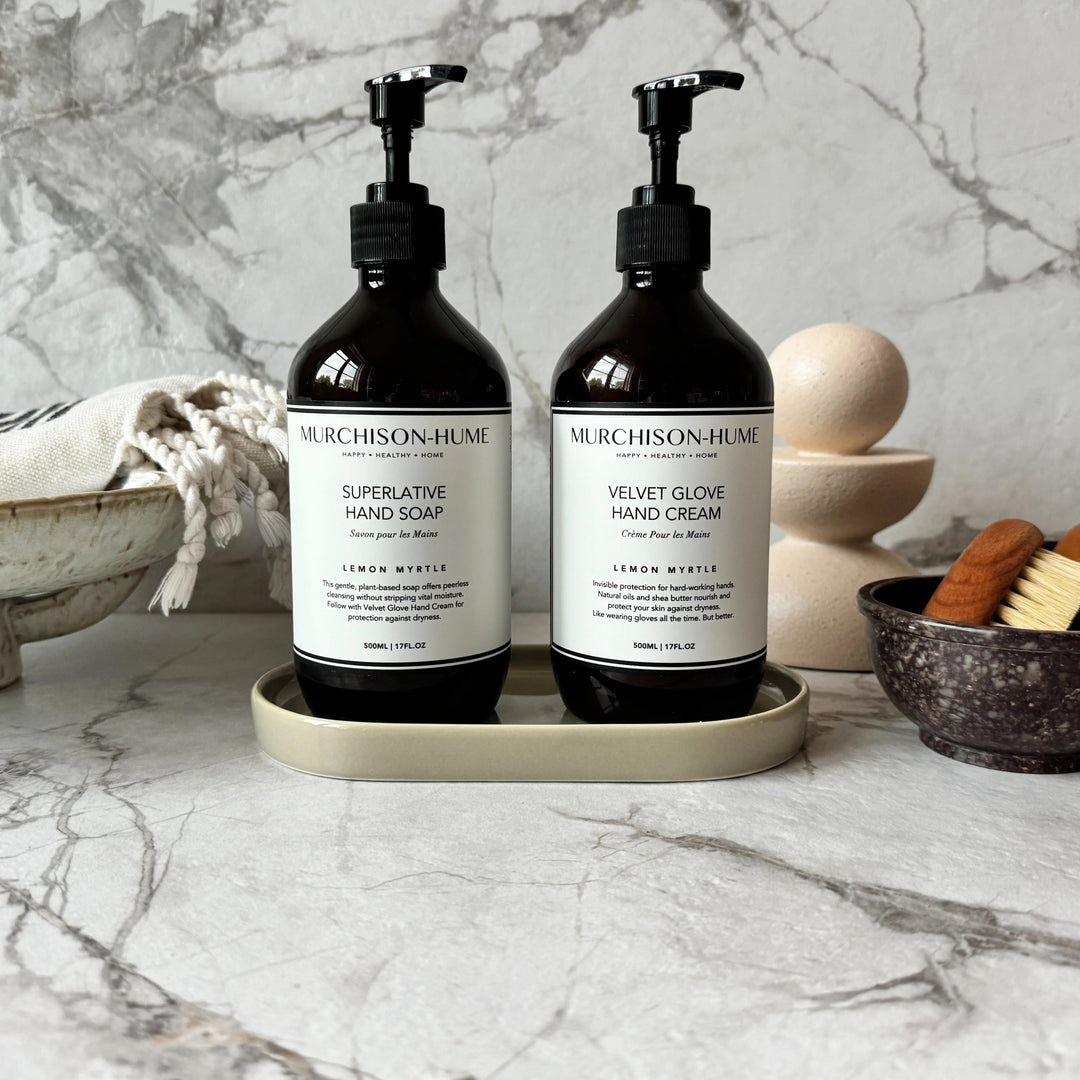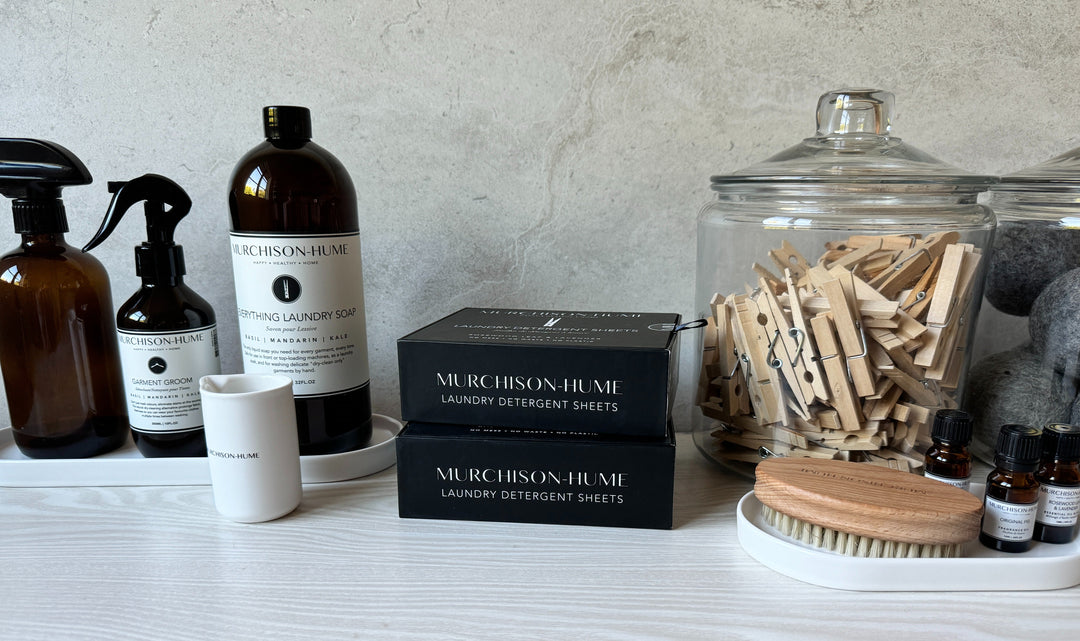In this strange new era of COVID-19, it’s tempting to slather your body in hand sanitizer and splash a lot of bleach around. But hold up. That may not be such a great idea. Chlorine Bleach is not for everyday cleaning. It’s a disinfectant. Cleaning and disinfecting are two related, but different things.
For decades, we’ve been told (mostly by big chemical companies who make them) that surface cleaners kill 99.9% of bacteria. First of all, that’s not strictly true. Even a heavy-hitting antibacterial chemical has to stay in contact with a surface for extended periods to reach those levels of anti-bacterial punch and once it's wiped away, germs begin to accumulate again almost immediately.
Despite this fact, most traditional cleaning products contain harsh chemicals unnecessary for everyday domestic cleaning.
Murchison-Hume products work differently. They remove the bacteria and the proteins (grime) that germs feed on to thrive. A simple spray and wipe is all that’s required to keep harmful germs at bay. If no one in your house is sick, you don’t need bleach. It’s that simple. In fact, bleach can represent more potential health risks.
Why You Should Ditch Bleach
Bleach is Toxic
Chlorine Bleach is a known toxin. We all know that bleach is very corrosive and can have adverse effects on skin, lungs, and eyes. It says so on the bottle. What most people don't know is that children and anyone with respiratory problems (like asthma) should avoid cleaning with bleach altogether.
It Ruins The Air Quality (and Your Home Fragrance)
Bleach affects indoor air quality. Bleach fumes can linger and pollute the very air you breathe at home. Not good.
Bleach Can Mix With Other Chemicals and Create Harmful Fumes
Bleach can create a toxic chemical cloud. When bleach comes into contact with ammonia, it can react to form chlorine gas, which can damage nasal passageways and lungs. The accidental mixture of these two products in homes has resulted in sickness and even death. Chlorine gas can also form when bleach reacts with acids, such as vinegar.
Bleach is Not Eco-Friendly
Bleach is terrible for your planet. Many traditional household chemicals contain bleach. Few people think about the effects those chemicals have once they go down the drain (and end up in our waterways and oceans). Bleach reacts with other chemicals in water to form the highly toxic compound Dioxin, which endangers marine and human life.
What’s The Bottom Line?
You don’t need bleach on the daily. "The good thing about COVID-19 is that it does not require any unique cleaning chemicals to disinfect hands and surfaces," says Andrew Janowski, an infectious disease expert at Washington University School of Medicine and St. Louis Children's Hospital.
When you clean with Murchison-Hume products, you can clean with confidence. They smell great, and get the job done safely.
Keep it simple. Keep it clean and stay well!







